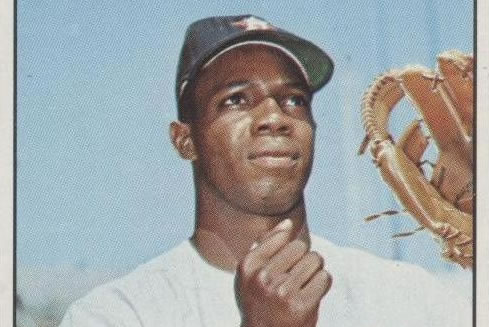Joe Posnaski, Judgmental Baseball Stats, and Jim Wynn
Aug 22, 2013 by Adam Darowski
We all know Joe Posnaski is wonderful. But I just read his post from yesterday about Judgmental Baseball Stats. It’s wonderful.
He cites several issues with baseball stats, such as defensive indifference (the steal did happen!), the lack of an RBI on a double play (was the run not batted in?), the sacrifice rules (as long as the ball is bunted or in the air, just not a grounder!), and—oh god—the error.
It’s really great. Please read the whole thing.
For all its flaws, WAR (and therefore Hall Rating) captures a lot of information not found in traditional baseball stats. For example, Jim Rice grounded into 315 double plays. During his 4-year double play “peak”, he grounded into 131 twin killings (five percent of his plate appearances), leading the league each season.
Those 315 double plays are not factored into Rice’s career .298 average. Well, 131 of the outs are, but 131 of them are not. It’s like he was getting away with something—until WAR came along. WAR docks him for these double plays.
Not all of them, mind you. Everybody grounds into double plays. WAR figures out—based on his opportunities to ground into double plays—how much the double plays hurt his team compared to the average player. Rice’s double plays were “worth” 42 runs below average. Double plays hurt—they erased 14.5% of his offensive value (his batting runs were +289) and shaved over four wins off his career WAR total. For Rice, that really hurts his Hall of Fame credentials.
He got in anyway, but he probably shouldn’t have.
Going back to the Posnaski article, I started wondering how much of an effect errors could have on a player’s value, too. Baseball-Reference has incorporated runs above and below average for reaching on errors into the batting component. So, you can’t find this on Baseball-Reference. But Rally’s original WAR spreadsheets (which became Baseball-Reference’s WAR) had them split out separately. I bought those spreadsheets when he made them available, so I’ve got that data through 2010.
Which player had his batting average hurt more than any player in history because of his own ability to force the defense to make errors?
Why it was Jim Wynn. “Well, shit,” I said out loud.
You see, Wynn rates as a Hall of Famer according to the Hall of Stats. Not one of the borderline guys, either. He has a rather comfortable 110 Hall Rating. Among eligible Hall of Famers, he ranks 167th—and there are 208 Hall of Famers, so there’s room for him. He ranks ahead of 85 actual Hall of Famers.
Yet, I still hadn’t put him in my Personal Hall of Fame. It seems like every facet of Jim Wynn’s life was an effort to reduce his batting average. He played during a severe pitcher’s era. He played in incredibly pitcher friendly home parks. He walked an incredible amount. And now this? Now the people who assign errors hurt his batting average more than anyone else?
Maybe it’s time I connect all these dots and realize why Wynn ranks as high as he does.
Here are the players with 26+ runs from reaching on errors (through 2010). Derek Jeter may have Wynn beat now, but Wynn still crushes him on a rate basis.
| Player | PA | ROE |
|---|---|---|
| Jim Wynn | 7904 | 36 |
| Derek Jeter | 9687 | 35 |
| Craig Biggio | 12321 | 32 |
| Hank Aaron | 13798 | 30 |
| Robin Yount | 12022 | 30 |
| Rondell White | 5805 | 28 |
| Glenn Hubbard | 5013 | 28 |
| Johnny Bench | 8568 | 27 |
| Sammy Sosa | 9801 | 27 |
| Mike Schmidt | 9938 | 26 |
| Gene Tenace | 5465 | 26 |
| Jack Clark | 8133 | 26 |
Remember, these are players who may have WAR figures a bit higher than we’d expect. There’s Gene Tenace, who I have often compared to Wynn (underrated skill sets, especially for the time). At least Teance received a single Hall of Fame vote. Wynn is the best player to not receive a single vote. I’ve been guilty of it, too. Until now. As of today, Jim Wynn is in my Personal Hall of Fame.